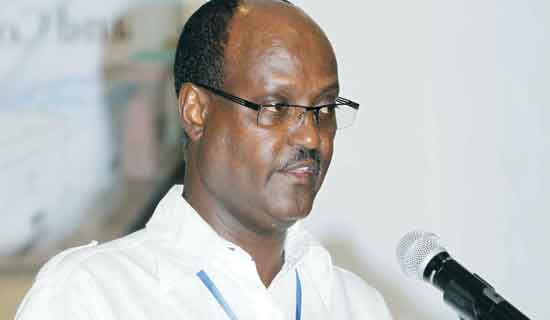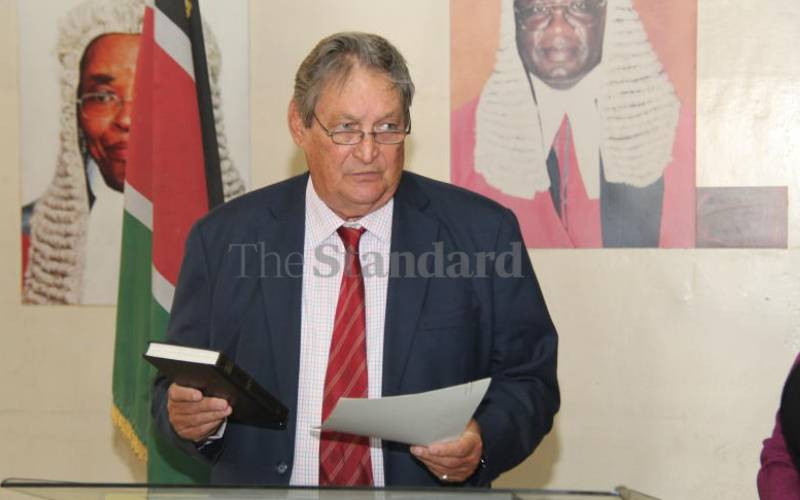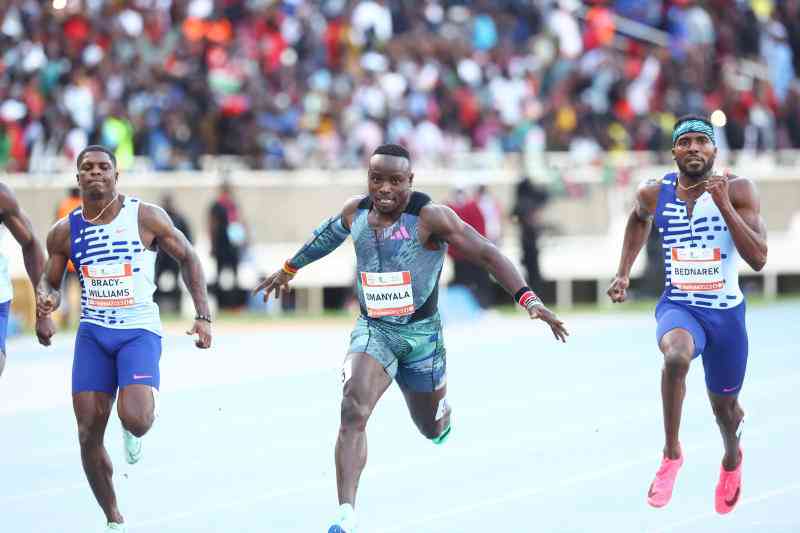 |
|
Supreme Court Judge Justice Mohamed Ibrahim addresses judicial officers at Serena beach resort hotel in Mombasa Thursday. [Photo: Maarufu Mohamed/Standard] |
By Benard Sanga
Mombasa, Kenya: Legal scholars and practitioners from East African countries have punched holes in the March 30, Supreme Court presidential petition ruling, saying it did not establish jurisprudence that can be emulated by law students.
The critics also argued that the ruling set a bad precedent for other courts in Commonwealth countries.
President of the Supreme Court, Chief Justice Willy Mutunga, did not turn up to defend the ruling in which he participated. He sent a judge to represent him.
The legal practitioners from the five EAC member states meeting in Mombasa said the verdict to uphold the election of President Uhuru Kenyatta had many flaws and should not be used as reference on similar matters in the future.
The calls from several participants at the regional workshop on constitutionalism and electoral process in East Africa, held Thursday, comes at a time when Judge Mohamed Ibrahim, one of the judges who made the ruling, is rooting for a constitutional amendment to increase the days the court should listen to future presidential petitions from 14 to 45 days.
The judge argued that if the court had enough time, it could have handled the petition differently.
Mutunga, in a speech read on his behalf by Justice Ibrahim said he will today hand over the election petition’s documents to local universities for scholarly studies.
But the legal practitioners protested the move saying the ruling had ‘serious flaws’ and lacked authority to be attributed to because no judge read it in court.
“We saw a situation where substantive justice was not arrived at because of technicalities. What jurisprudence can be expected from a unanimous decision where judges did not lay down individual reasons and methods on how they arrived at that decision?” said Dan Ameyo, an advocate of Kenya’s High Court.
The Supreme Court upheld the election of Uhuru and dismissed petitions filed by his closest challenger, Raila Odinga, and a civil society group.
CJ Willy Mutunga read the judges’ decision but the reasoning behind it was issued later. Ameyo said students would not learn much from the ruling because they did not have reasons from each of the six judges on how they reached the decision.
Law Society of Kenya (LSK) Chairman Erick Mutua said failure by each judge to submit reasons and methods of arriving at their decision had created a perception in many Kenyans’ minds that they had something to hide.
He said the conduct and utterances of some members of the defence’s legal team had also portrayed a picture that the court had no control of the proceedings.
“We had a counsel telling the court that it was a young court and that it was on trial, but judges took it lightly. That portrayed the court as not being in control,” said Mutua.
Stay informed. Subscribe to our newsletter
 The Standard Group Plc is a
multi-media organization with investments in media platforms spanning newspaper
print operations, television, radio broadcasting, digital and online services. The
Standard Group is recognized as a leading multi-media house in Kenya with a key
influence in matters of national and international interest.
The Standard Group Plc is a
multi-media organization with investments in media platforms spanning newspaper
print operations, television, radio broadcasting, digital and online services. The
Standard Group is recognized as a leading multi-media house in Kenya with a key
influence in matters of national and international interest.
 The Standard Group Plc is a
multi-media organization with investments in media platforms spanning newspaper
print operations, television, radio broadcasting, digital and online services. The
Standard Group is recognized as a leading multi-media house in Kenya with a key
influence in matters of national and international interest.
The Standard Group Plc is a
multi-media organization with investments in media platforms spanning newspaper
print operations, television, radio broadcasting, digital and online services. The
Standard Group is recognized as a leading multi-media house in Kenya with a key
influence in matters of national and international interest.







